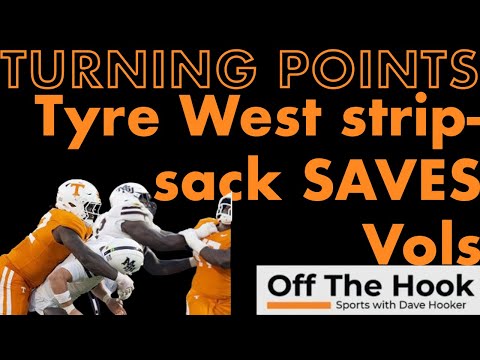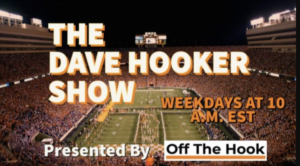Without meaning to, Rick Barnes recently seemed to let slip that the Tennessee Vols are in trouble when it comes to NIL. Speaking at a Big Orange Caravan stop, Barnes mentioned that as UT was trying to fill its roster with more elite transfers, many of them had asking prices out of their range.
That’s a big admission. At the time, many were wondering why Rodney Rice, who seemed like a lock to end up at Tennessee, committed to the USC Trojans. Based on what Barnes said, UT was unable to afford him, which raised the question as to whether or not they were struggling on the NIL front.
Two days later, UT athletics director Danny White seemed to quell those rumors at another stop during the caravan tour. He said the Tennessee Vols are as “competitive as anyone” and continue to have their foot on the gas, noting they’ve grown from $140 million to $280 million a year in revenue.
So who’s telling the truth?
Well, one side has a much greater incentive to lie, and White would obviously be on that side. Also, White’s comments were inconsistent with what he said right before, as he was questioning the Texas Longhorns’ reported $35 to $40 million football budget, saying numbers are being thrown out and implying they mean nothing.
Why would he mention revenue growth, then?
The truth is the Tennessee Vols seem to be in a lot more trouble on the NIL front than White wants to let on. Barnes’ comments are just the latest among a string of evidence that that suggests such a thing, and yes, the Nico Iamaleava transfer to the UCLA Bruins after Josh Heupel refused to pay is part of it.
Sure, the school may be getting praise on a national level for holding its ground, but what if they were forced to? This is the school that openly went to war with the NCAA just a year ago on behalf of Iamaleava and wouldn’t then cobble up the money to pay him among the other elite quarterbacks after how hard they went for him?
Iamaleava isn’t the only bit of evidence on the football front either. Don’t forget that Mike Matthews and Rickey Gibson III both entered the transfer portal before spring practice and rejoined the program, clearly holding out for more money too. Jakobe Thomas, who likely would have been a starter at safety this fall, is now in the portal as well.
All of this seems to suggest UT doesn’t have the money to pay everybody. Will West came on our show recently and noted that the wealthy boosters for many SEC schools, Tennessee in particular, skew on the older end and see a fundamental problem opening up the checkbook for college athletes if they don’t get some sort of return, which they won’t.
Simply put, it’s time to raise some red flags about the Tennessee Vols and NIL.
There’s evidence on its face that the school isn’t bringing in as much money anymore, and that evidence is simply being in the SEC. I’ve screamed for two years about how Greg Sankey got fleeced with the SEC’s ESPN contract. They are locked in at $300 million a year for 10 years. Meanwhile, the Big Ten is locked into three networks at $1 billion a year for seven years.
Last year was the first year both contracts went into effect.
Since that revenue is distributed evenly among the schools, Big Ten teams already have way more money coming in and are able to make much greater investments without the need from booster donations. That means those same boosters have more money to throw around in NIL revenue.
Cobbling all of this evidence together, it seems pretty clear the Tennessee Vols are in a bit of trouble, and White is hiding that fact. What seemed like an advantage for them five years ago is turning into a disadvantage, and they may have to start moneyballing their moves to compete.







